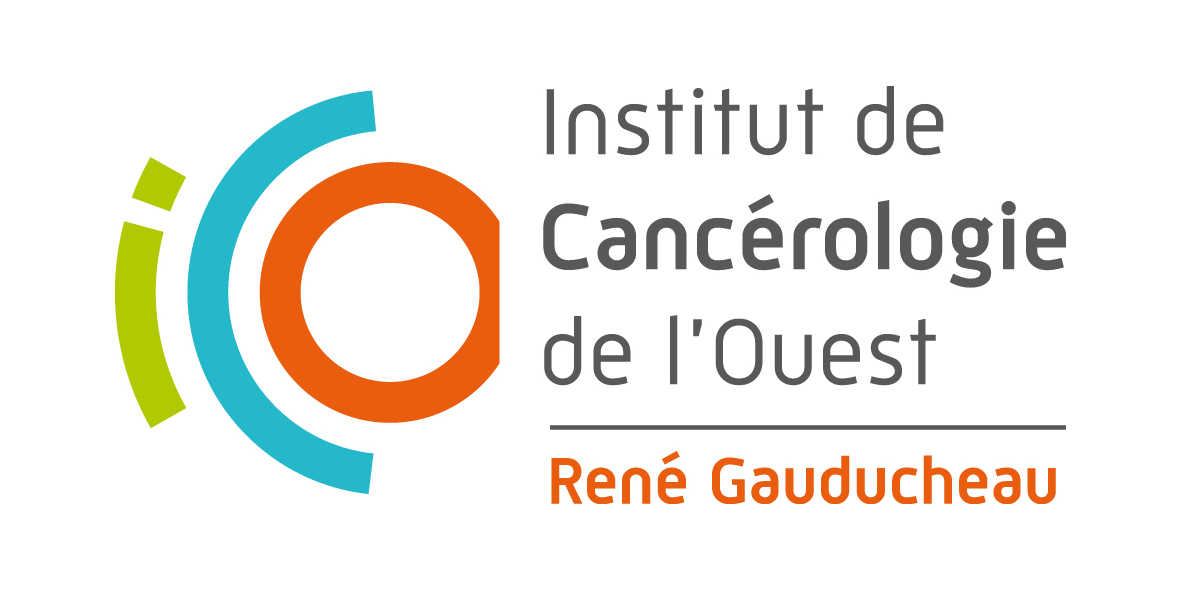Randomized phase II study of preoperative afatinib in untreated head and neck cancers: predictive and pharmacodynamic biomarkers of activity
Résumé
There is no strong and reliable predictive biomarker in head and neck squamous cell carcinoma (HNSCC) for EGFR inhibitors. We aimed to identify predictive and pharmacodynamic biomarkers of efficacy of afatinib, a pan-HER tyrosine kinase inhibitor, in a window-of-opportunity trial (NCT01415674). Multi-omics analyses were carried out on pre-treatment biopsy and surgical specimen for biological assessment of afatinib activity. Sixty-one treatment-naïve and operable HNSCC patients were randomised to afatinib 40 mg/day for 21–28 days versus no treatment. Afatinib produced a high rate of metabolic response. Responders had a higher expression of pERK1/2 ( P = 0.02) and lower expressions of pHER4 ( P = 0.03) and pRB1 ( P = 0.002) in pre-treatment biopsy compared to non-responders. At the cellular level, responders displayed an enrichment of tumor-infiltrating B cells under afatinib ( P = 0.02). At the molecular level, NF-kappa B signaling was over-represented among upregulated genes in non-responders ( P < 0.001; FDR = 0.01). Although exploratory, phosphoproteomics-based biomarkers deserve further investigations as predictors of afatinib efficacy.
Fichier principal
 Randomized phase II study of preoperative afatinib in untreated head and neck cancers predictive and pharmacodynamic biomarkers of activity.pdf (2.44 Mo)
Télécharger le fichier
Randomized phase II study of preoperative afatinib in untreated head and neck cancers predictive and pharmacodynamic biomarkers of activity.pdf (2.44 Mo)
Télécharger le fichier
| Origine | Fichiers éditeurs autorisés sur une archive ouverte |
|---|
